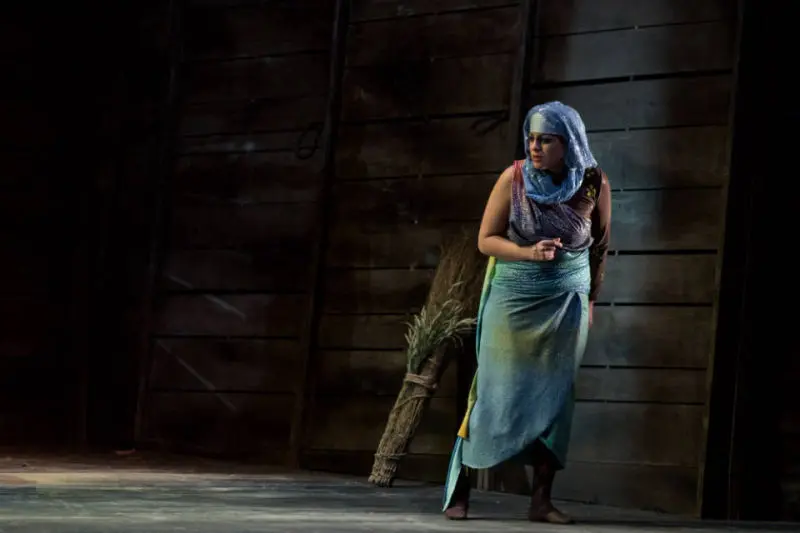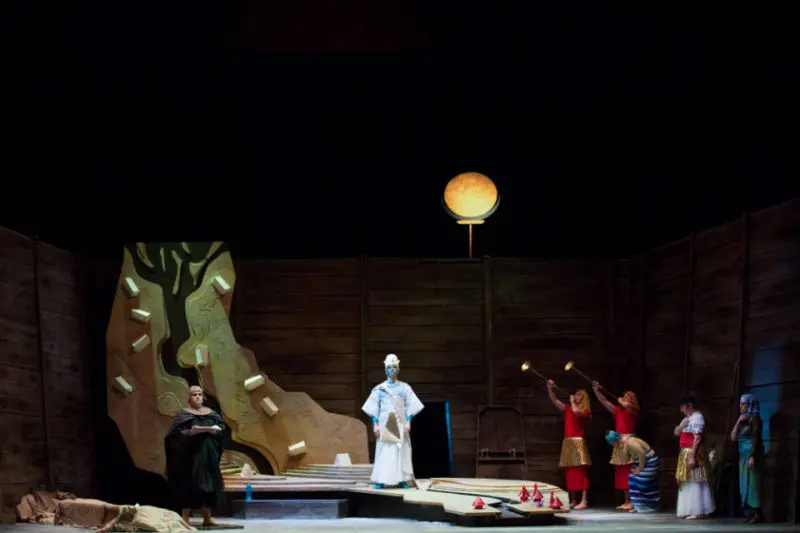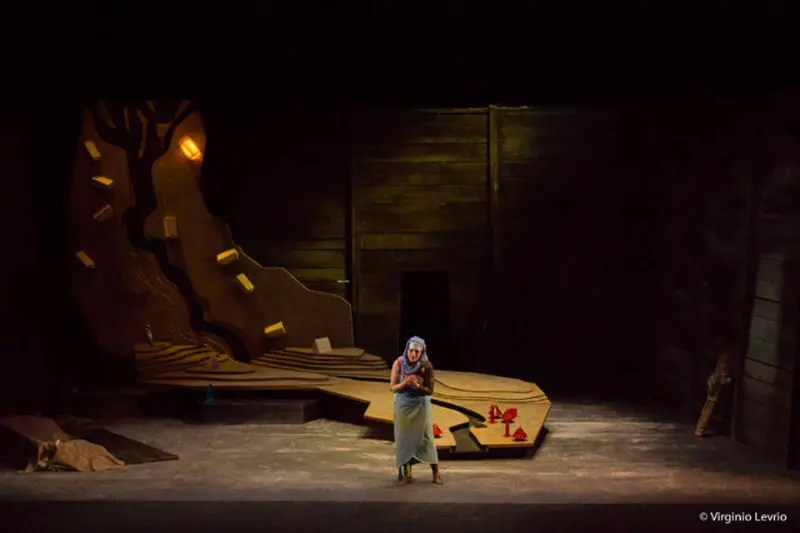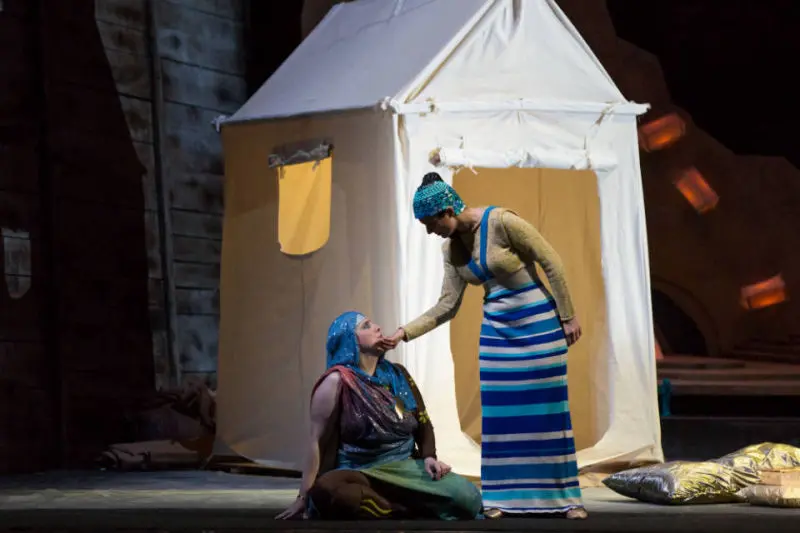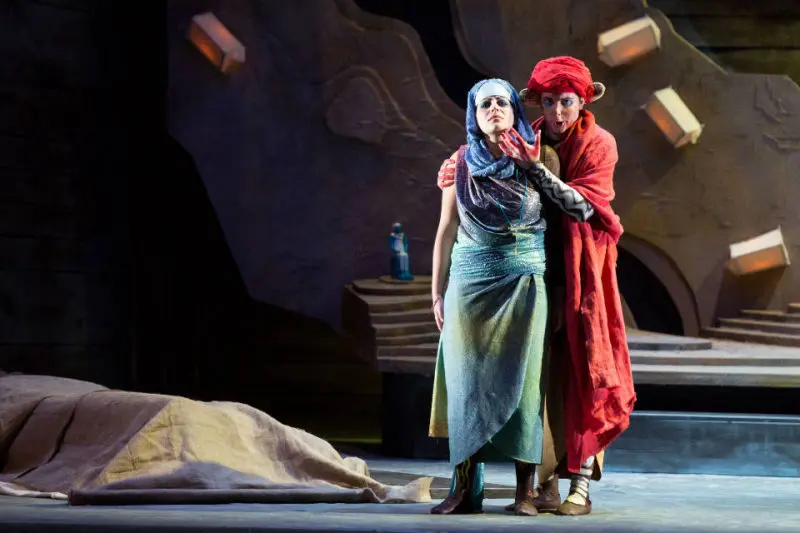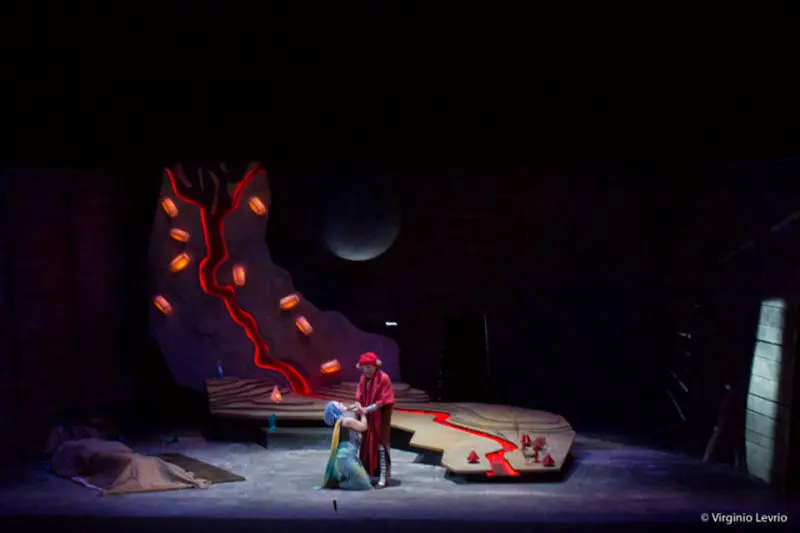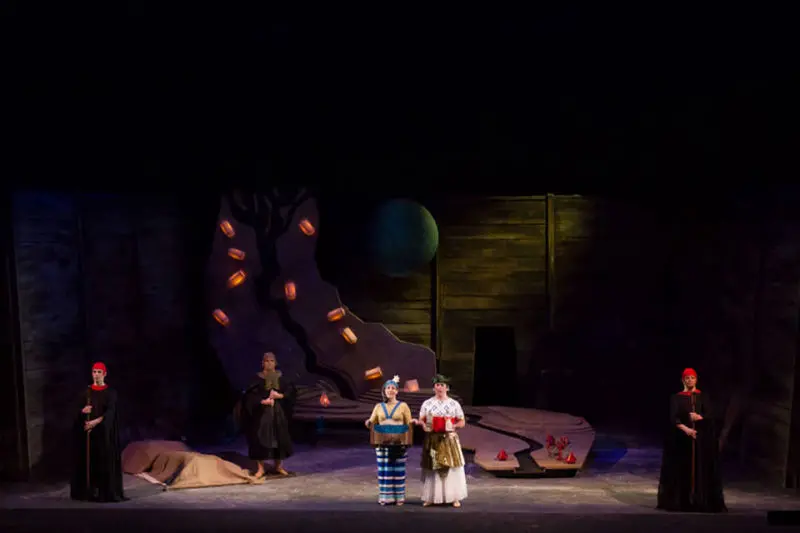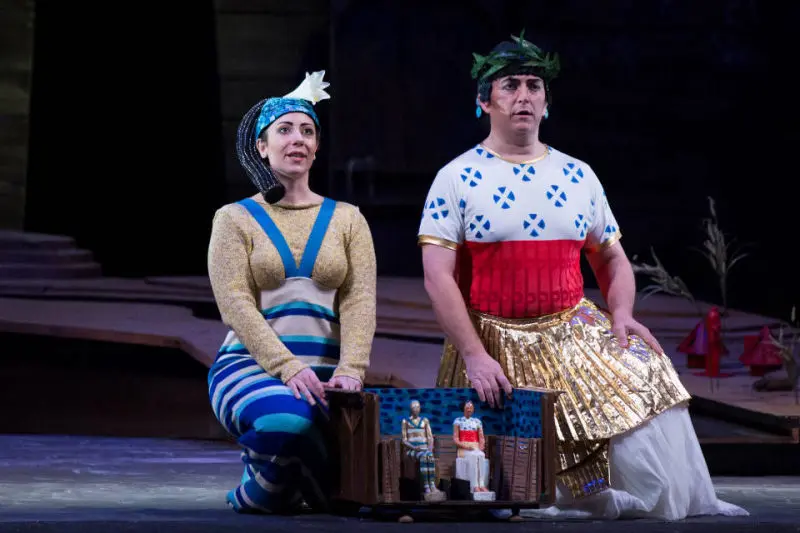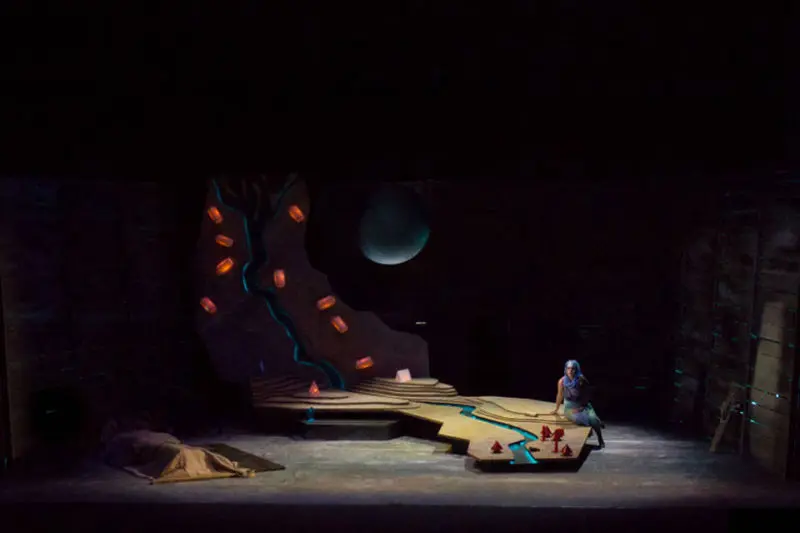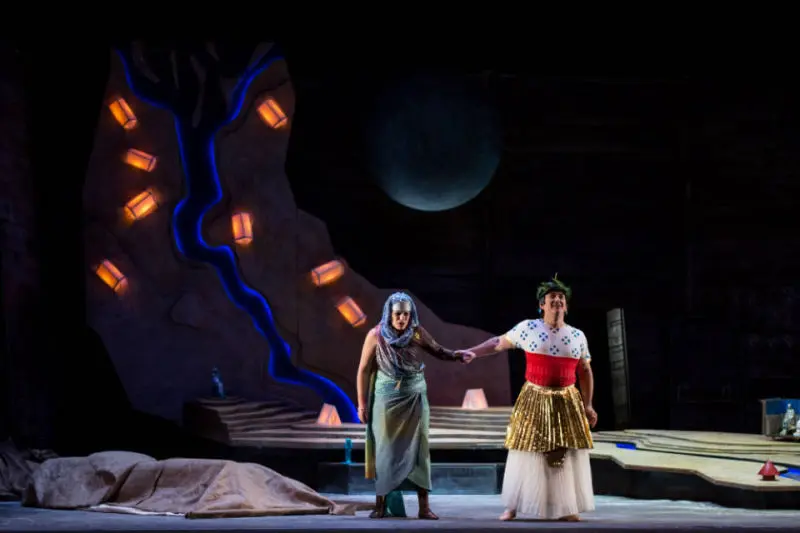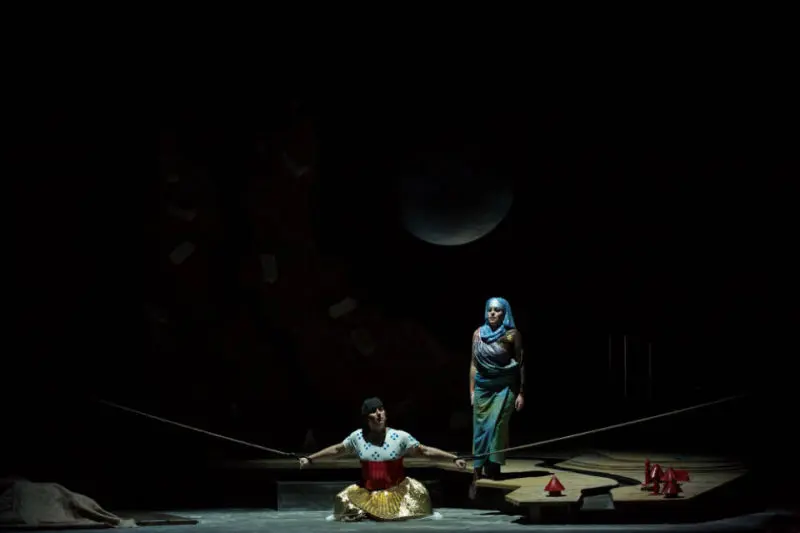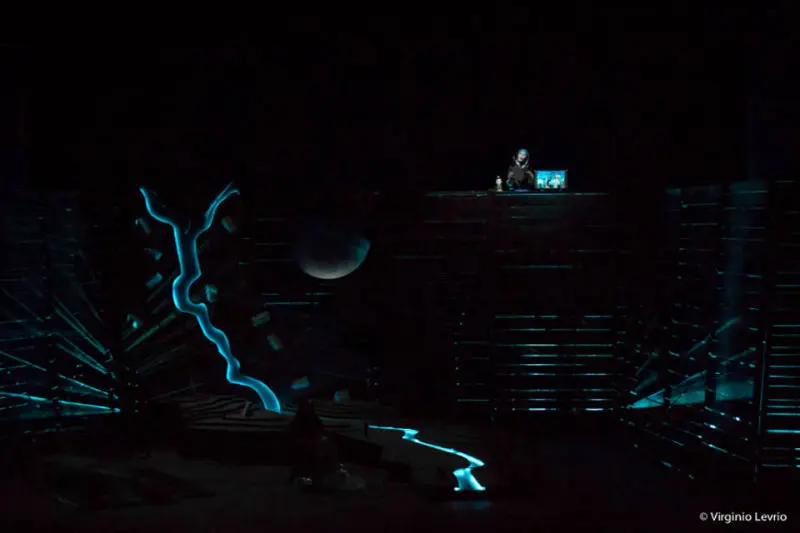AIDA
Amore è coraggio
Music Giuseppe Verdi
Libretto Antonio Ghislanzoni
Dramatic adaptation Stefano Simone Pintor
Musical adaptation Alberto Cara
ARTISTIC TEAM
Musical conduction Pietro Billi
Stage direction Stefano Simone Pintor
Set design Gregorio Zurla
Costume design Stefania Barreca
Lighiting design Valerio Tiberi and Virginio Levrio
Production As.Li.Co. - Opera domani... project 2014 - XVIII edition
CAST
Winners of the AsLiCo competition for young opera singers
TOUR
The production, with more than 150 performances, staged a tour stopping in most major Italian opera houses and theatres, including the Teatro Regio in Turin, the Teatro Comunale in Bologna, the Teatro Sociale in Como, the Teatro Ponchielli in Cremona, the Teatro Comunale in Bozen and many others.
Right as “The Magic Flute”, the production has being aired on a TV program dedicated to it, called “Verdi a modo mio”, from May to June 2012 on the network DeA Kids of the Sky TV platform.
AWARDS
This production has been awarded with the representing medal of the Italian Republic President Giorgio Napolitano for the high cultural and educational value of the project
DIRECTOR'S NOTES
More than three thousand years ago Egypt was a world power capable of dominating the world with his army. The wars for total control of North Africa and the territory adjacent to the Nile were the order of the day, especially against the Ottoman Empire, of which Ethiopia was an important province. A scenario not too different from today, in fact, since the war, anywhere in the world, appear to have never gone out of fashion.
It takes courage to make a war, to defend one's land from the attack of the enemy. Even in the story of Aida there is a war fought with courage against the enemy. Yet the main theme of this work does not seem to be really the war. The argument that interested so much Verdi, whom this year we celebrate 200 years since his birth, seems to be another one... And that is love! The love struck between Aida and Radames, the protagonists of this story, but also the love that Amneris feels for Radames (a difficult love because unrequited).
On closer inspection, it seems that in this story true courage lies in the ability to love someone. In fact, the courage to love is much more important in a world where everyone are only capable of fighting and struggling. Aida and Radames are the bravest of all in this story, because they are not normal lovers, but special. Aida, in fact, is the daughter of the King of Ethiopia and she was reduced as a slave of Amneris, the daughter of Pharaoh of Egypt. Yet no one knows who she really is, everyone thinks she is a normal Ethiopian girl of humble origins. Radames, however, is a young warrior and the future head of the Egyptian army, and he is the one that will win their battle in Ethiopia, reducing also Aida's father, Amonasro, as one of their slaves. These guys, therefore, are not only of two different welfare states, but they are also descending from two different peoples, with different cultures and, most importantly, fighting each other. They are enemies, in fact. That is what we can call true courage: the courage to love the other!
This is the greatest lesson in life and this gives us what we need to tell to ourselves: the acceptance of diversity, the courage to love someone in spite of what the world around us tells, even if this comes to us depicted as a foreigner and therefore as an enemy to fight. These all are prejudices that prevent us from truly know a person and that, instead, hide to us the true beauty that lies behind every meeting and that is within each of us.
On the contrary, if one is able to avoid being influenced and instead to follow his heart, one day he will come to know a love like the one of Aida and Radames, a love that can really change their lives; a love that can challenge any rule, any law and any war.
We think that this overwhelming love have the same power of a river in flood. So, this is the metaphor that we have decided to use to tell this story. In fact, as we all have learned in school, the flooding of the Nile have always been destructive, but they also generated new life, they have allowed the Egyptians to cultivate the surrounding land. Using the words of the historian Herodotus, Egypt is the "gift of the Nile", because all along its course the land is fertile, and where the water does not go the desert remains. This is why the Nile was revered as a magic river, divine, able to counter the drought and the desert just as love is able to counteract the war and give new life and hope to all.
So, it is true, Aida and Radames eventually die as a result of their "countercurrent" choices. In order to pursue their love they will go against their society and their fathers, terrible and immutable in their souls. They will take their own responsibility and in the end they will decide to fight against this world of hatred and violence and to give their lives to pursue their own ideas of love. But just as we are told in the ancient Book of the Dead (an Egyptian sacred text that was buried with the dead to protect them and help them in their journey to the afterlife), the souls across the divine river in the darkness of the night and, in the eternal struggle of good against evil, they fight to ensure that the God Sun rises in the morning again. This is why Aida and Radames have struggled: to give us the light, to enlighten us the way forward!
And us? We can learn from history and not repeat the same mistakes that since three thousand years man does... And we can teach everyone, before it is too late, the courage to accept and love his neighbor. Always!
